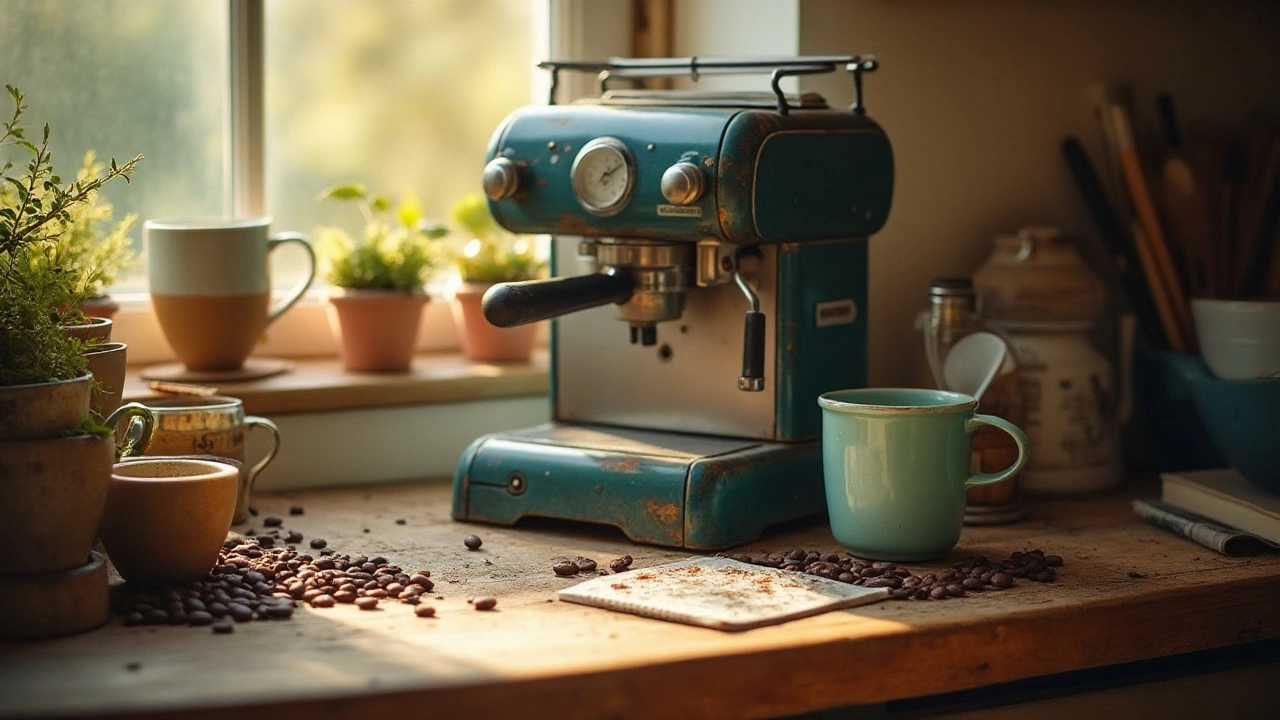Thinking about buying a used espresso machine? You can get a solid brew without splurging on a brand‑new model. The key is knowing what to look for, where to search, and how to keep the machine in top shape. Below you’ll find simple steps that help you spot a good deal and avoid common pitfalls.
First, set a realistic budget. Used machines can range from £50 for a basic stovetop model to £500 for a semi‑automatic unit. Once you have a price window, check local marketplaces, refurbished shops, and online forums. Look for listings that include clear photos, a description of usage hours, and any recent service records. Ask the seller for the serial number so you can verify the model and warranty status.
Next, inspect the machine’s exterior. Scratches and dents are fine, but the portafilter, group head, and steam wand should be free of rust or severe wear. If you can, run the machine and listen for abnormal noises. A steady pump sound and even water flow usually mean the internal pump is still healthy. Any loud rattling or leaks are red flags.
After you bring the machine home, give it a thorough cleaning. Descale the boiler with a citric‑acid solution; this removes mineral build‑up that can affect temperature stability. Clean the group head with a brush and run a few blank shots to flush out old coffee oils. A quick check of the gasket’s condition will tell you if it needs replacement – a cracked gasket leads to pressure loss.Regular maintenance extends the life of a second‑hand espresso maker. Schedule a professional service at least once a year, especially for machines with built‑in grinders. Replace the water filter if the model has one, and keep the drip tray clean to avoid overflow issues.
Finally, keep spare parts on hand. Gaskets, filters, and descaling tablets are inexpensive and easy to find online. Having these on standby prevents downtime and keeps your coffee tasting fresh.
Buying a used espresso machine doesn’t have to be a gamble. By checking the machine’s condition, confirming its service history, and committing to regular upkeep, you can enjoy café‑quality shots at a fraction of the cost. Happy hunting, and enjoy those rich, aromatic brews!

Buying a used coffee machine can be an enticing option for those who love their daily caffeine fix but are cautious with their spending. This article explores the benefits and potential pitfalls of purchasing pre-owned coffee makers, offering valuable insights and practical advice. From evaluating the condition of the machine to understanding the maintenance needs, learn how to make an informed decision. Uncover tips on finding reliable sellers and knowing what features are essential to enjoy a great cup of coffee without breaking the bank. Discover when buying used can be a smart choice, and when you might be better off investing a bit more.